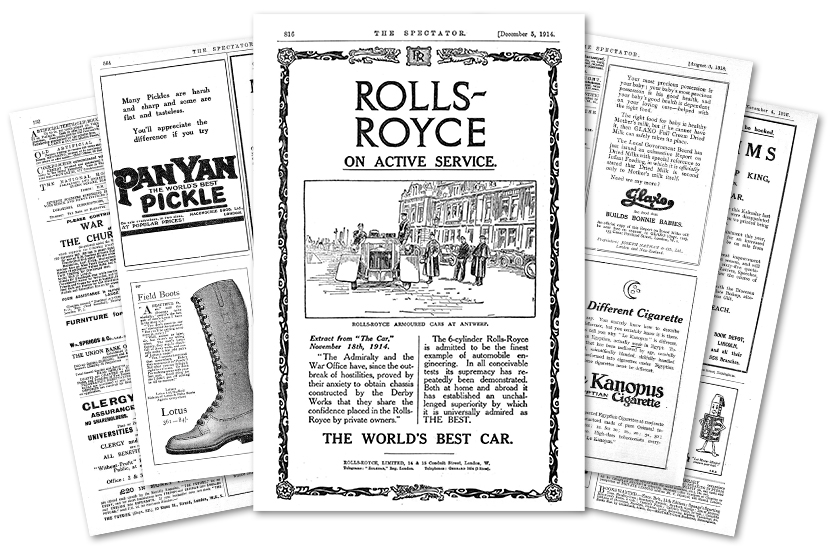A conventional hierarchy of print media would put serious journalism at the top. Far beneath that would be tabloid journalism. And then at the very bottom would be advertising.
Except, in one respect, I think that order should be reversed. Yesterday’s advertising is much more interesting than yesterday’s serious journalism.
I suspect this is because advertising, like tabloid journalism, reflects what people really care about — and always have done. Gossip. Sex. How to attract the opposite gender. What car to buy. Health complaints. Miracle cures. Death. Money. The Beckhams. The Windsors. The new 55in QLED 4K television. At last relief from embarrassing itching. Love Island’s Kaz Crossley displays her jaw-dropping figure in a black bikini as she dances in a shower while in Thailand. How else can a month’s salary last a lifetime?
Advertising and tabloid journalism — they’re the real thing. They are what everyone is truly interested in. Serious journalism, by contrast, covers what a small, self–appointed elite pretend to be interested in so as to appear sophisticated and au courant to each other. It’s often a duty read, done to avoid the fear of looking ill-informed.
Thomas Sowell once said that ‘Political activism is a way for useless people to feel important’. The same could be said for reading commentary on current affairs. Because when you look back across the sands of time, though 2 per cent of what is debated turns out to be of immense importance, the majority turns out to be astoundingly irrelevant. And it’s impossible to tell at the time which is the 2 per cent that actually matters. In the wider scheme of things, it is quite likely that Brexit turns out to be as irrelevant as the ground-nuts scandal, despite the gallons of ink spilled over it; by contrast the really game-changing stuff — such as admitting China to the World Health Organisation — barely aroused any comment at the time.








Comments
Join the debate for just £1 a month
Be part of the conversation with other Spectator readers by getting your first three months for £3.
UNLOCK ACCESS Just £1 a monthAlready a subscriber? Log in